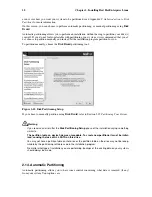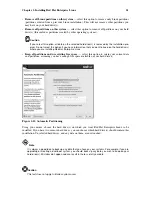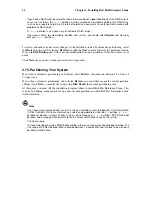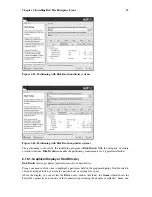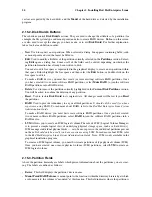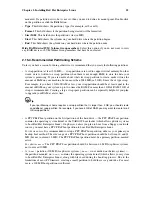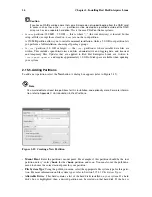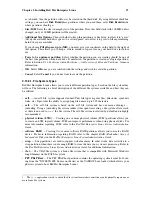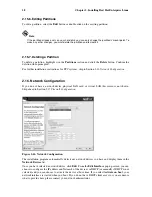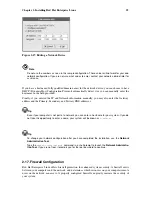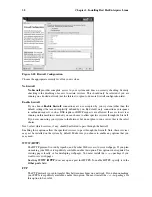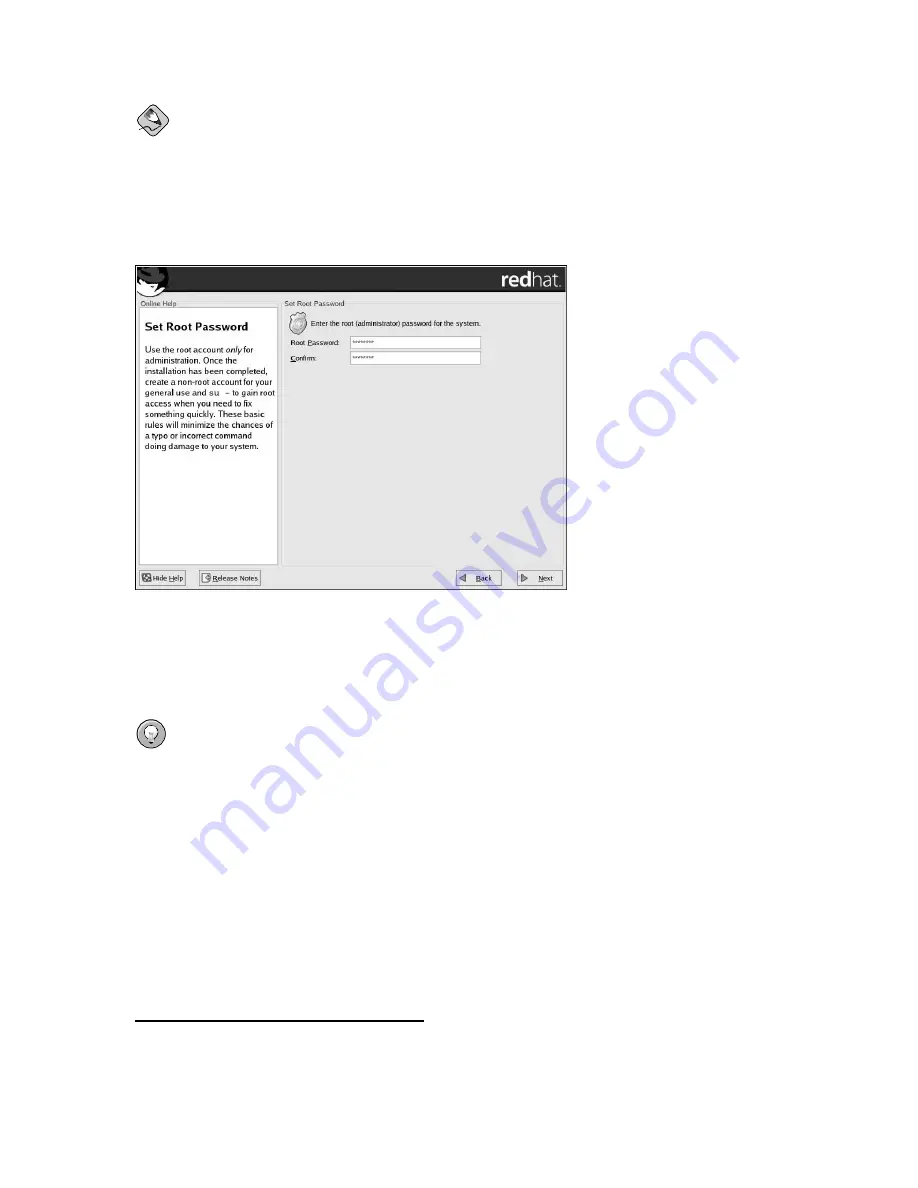
34
Chapter 2. Installing Red Hat Enterprise Linux
Note
The root user (also known as the superuser) has complete access to the entire system; for this rea-
son, logging in as the root user is best done
only
to perform system maintenance or administration.
Figure 2-21. Root Password
Use the root account only for system administration. Create a non-root account for your general use
and
su -
to root when you need to fix something quickly. These basic rules minimize the chances of
a typo or an incorrect command doing damage to your system.
Tip
To become root, type
su -
at the shell prompt in a terminal window and then press [Enter]. Then,
enter the root password and press [Enter].
The installation program prompts you to set a root password
2
for your system.
You cannot proceed to
the next stage of the installation process without entering a root password.
The root password must be at least six characters long; the password you type is not echoed to the
screen. You must enter the password twice; if the two passwords do not match, the installation program
asks you to enter them again.
You should make the root password something you can remember, but not something that is easy for
someone else to guess. Your name, your phone number,
qwerty
,
password, root
,
123456
, and
anteater
are all examples of bad passwords. Good passwords mix numerals with upper and lower case letters
and do not contain dictionary words:
Aard387vark
or
420BMttNT
, for example. Remember that the
2. A root password is the administrative password for your Red Hat Enterprise Linux system. You should only
log in as root when needed for system maintenance. The root account does not operate within the restrictions
placed on normal user accounts, so changes made as root can have implications for your entire system.

